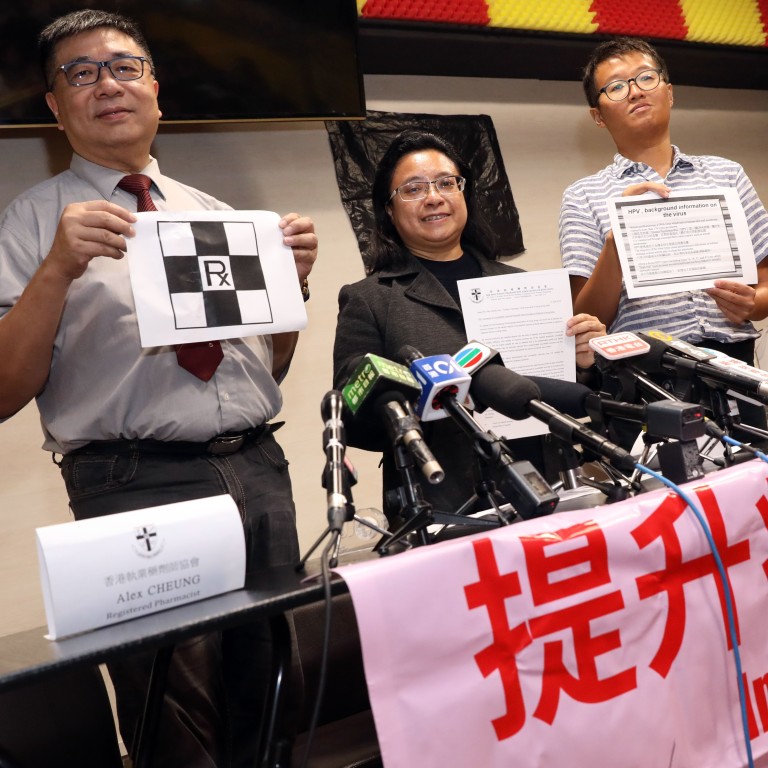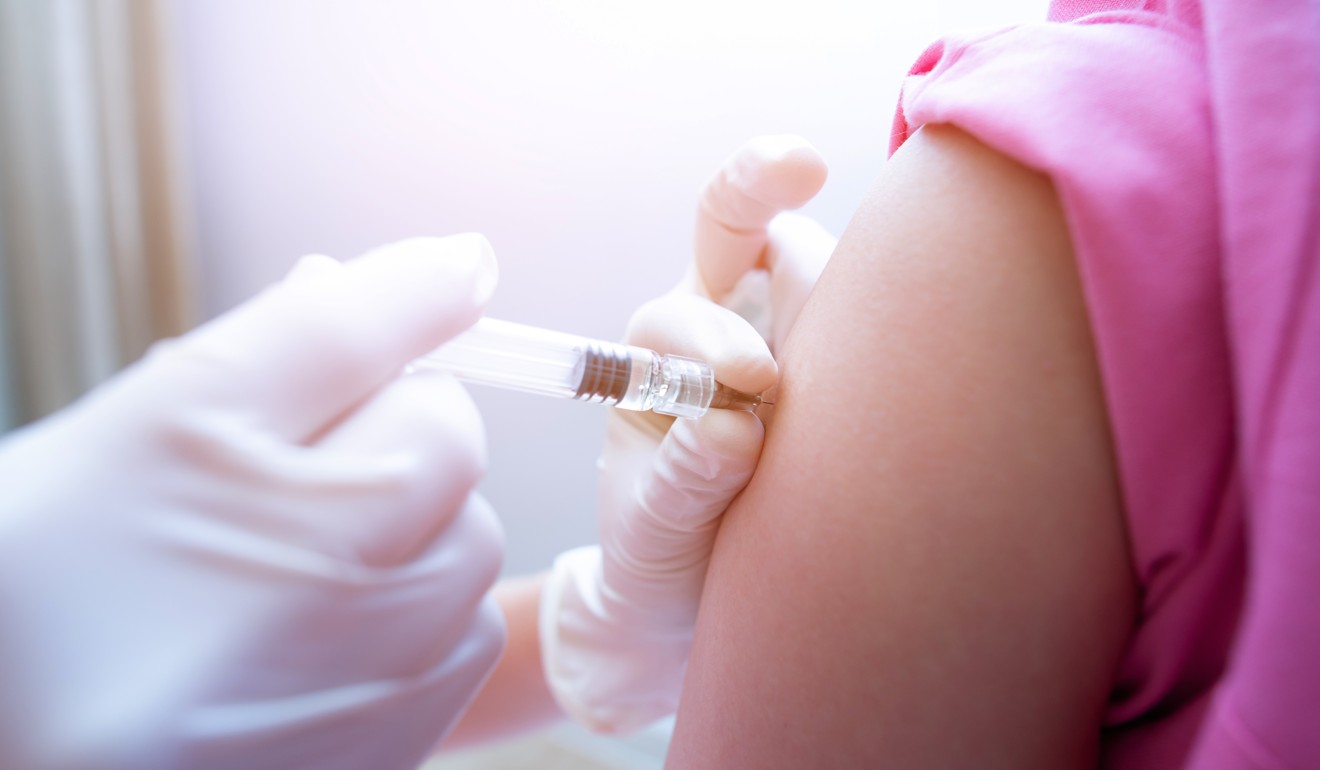
Hong Kong pharmacists urge health department to conduct proactive checks to ensure quality of HPV vaccines
- Pharmacists urge patients to scrupulously check for languages on labels of vaccines to figure out whether they have been smuggled into Hong Kong
- Health department trying to gather intelligence through various channels following seizure of 76 boxes of suspected counterfeit vaccines
HPV vaccines are in high demand among visitors from mainland China who travel across the border for the jabs.
Hong Kong has been experiencing a shortage of HPV vaccines since 2017 due to supply constraints by its sole manufacturer – Merck & Co, known outside the US as Merck Sharp & Dohme (MSD). Iris Chang Yee-man, president of the Practising Pharmacists Association, said some online sellers still claimed the vaccines were available.
“People should be careful about clinics claiming to be fully stocked with HPV shots,” Chang said. “We were shocked when we heard these reports [about suspected counterfeit shots]. Hong Kong has strict regulations to ensure patients receive genuine medication, a reason many people come here to get the shots.
“If we cannot maintain our standards, we will no longer be able to offer quality health services,” she said.

The association said the health department should increase proactive regulatory checks on clinics offering HPV shots, while the medical facilities should buy the vaccines only from licensed manufacturers.
Last year, MSD said it was making significant investments to meet increasing global demand for the shots, while also mentioning the market in Hong Kong was greater than anticipated.
In May, authorities investigated at least one clinic in the city after MSD denied providing it with HPV vaccines.
Hong Kong clinic that is under investigation for sourcing of HPV vaccine closes down
HPV vaccines are intended for protection against human papillomavirus, which increases the risk of, among several other diseases, cervical cancer – the seventh most common cancer among local women in 2016. That year, there were 510 new cervical cancer cases. The vaccine cannot cure a person already infected with the virus.
“It is very difficult for us to say where these [suspected] vaccines come from,” said Alex Cheung Tak-wing, vice-chairman and public relations director of the Hong Kong General Chamber of Pharmacy.
“These [suspected] vaccines are not manufactured under strict conditions, so it is also hard for us to know what ingredients are in them,” he said.
Another pharmacist said people who wanted to get the shots should also check the containers’ labels for other languages – such as Korean, Malay or Thai.
“These types of vaccines [with labels in more than one language] may not be fake, but they are smuggled into Hong Kong without proper certification,” said Brian Ng Siu-wai, a pharmacist registered with the Hong Kong Academy of Pharmacy.
“There is no guarantee of their quality and they may give patients a false sense of security. But in reality, people might just get a shot of placebo or even harmful substances,” he said.
He added the suspected vaccines could be identified by an extra comma where the ingredients were listed and urged people to only go to registered medical practitioners.

The department urged people to seek advice from health care professionals if they felt unwell after receiving shots, or if they had any doubt over whether they should receive vaccination, including booster shots.
A customs official said the department was still investigating the samples seized from the Kwun Tong pharmacy last Friday, adding that anyone selling fake products could be fined up to HK$500,000 (US$63,876) and also jailed for five years.
In another development, pharmacists have issued a statement regarding disruption of services in Sheung Shui, where violent protests against the now-suspended extradition bill and parallel traders from mainland China caused many shops to down their shutters early on Saturday.
Hong Kong border town of Sheung Shui rocked by protest violence and chaos
“We respect the right to peaceful protest, but we request the protesters not to harass customers or pharmacies,” said Chang, adding the pharmacies were important primary health care providers.
The association said it had received more than 30 inquiries following the protests on Saturday, with some patients worrying whether they would be able to get the medicines they needed.
Chang also said the pharmacies in Sheung Shui had provided medicines and medical advice not only to mainland Chinese but everyone, including the protesters.
“Even in war zones, health care facilities – such as clinics, hospitals and pharmacies – are considered off-limits. So, we ask the protesters to respect the safety and rights of patients,” Chang said.

